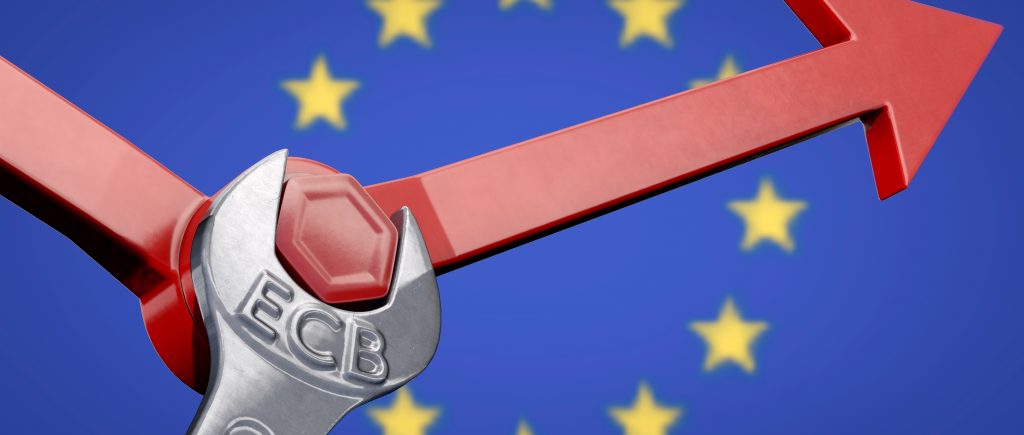In July, there won’t be any surprise rate cut, and all eyes are now on September. Following the June rate cut, the European Central Bank (ECB) is expected to keep interest rates unchanged during its July meeting. Policymakers emphasize that the June cut does not imply a linear reduction in rates.
With no significant data developments since June, the focus shifts to the new quarterly macroeconomic projections expected in September. Market participants anticipate two more rate cuts by year-end.
ECB President Christine Lagarde recently highlighted the Eurozone’s advanced position on the disinflationary path. However, uncertainty remains about the future recovery. Among ECB Governing Council members, there’s a divergence of views. Some favor one rate cut, while others advocate for two. The hawkish stance emphasizes balancing inflation risks, with some caution against rapid policy rate reductions.
Analysts predict that the ECB will cut rates twice more this year, likely in September and December. While this Thursday’s press conference may not provide additional clarity, market participants closely monitor the economic outlook.
A potential Fed rate cut in September, coupled with weakening growth prospects, could reinforce the ECB’s decision for a September cut. Forecasts refer to a 25 basis point interest rate cut in both September and December, with the deposit rate reaching 2.50% by 2025.
ECB is unlikely to implement consecutive policy rate reductions due to persistent service price inflation, robust wage growth, and a resilient labor market. Analysts also suggest that policy rates will remain restrictive until they approach approximately 3%.
The ECB is projected to execute two additional rate cuts in 2024, followed by quarterly reductions of 25 basis points in 2025. Lagarde’s recent remarks signal the possibility of a rate cut in September, albeit with less forceful signaling than before the June cut. Hence, the ECB will indeed lower rates in September, provided that wage and inflation data do not reveal any significant upside surprises.

 Noor Trends News, Technical Analysis, Educational Tools and Recommendations
Noor Trends News, Technical Analysis, Educational Tools and Recommendations




